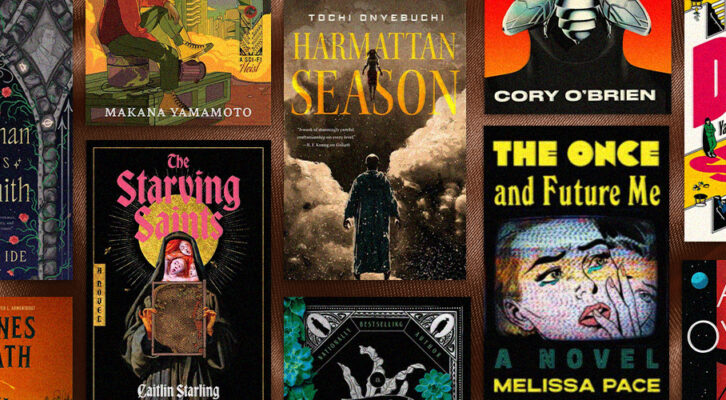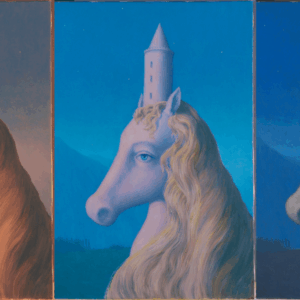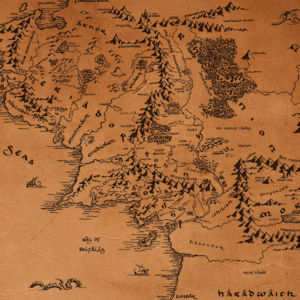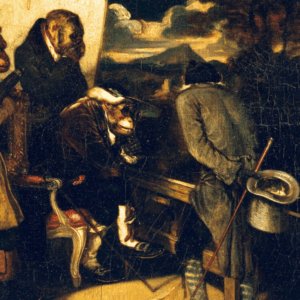
Mark Greif on What Thoreau Can Teach Us About Resisting Trump
In Conversation with Open Source's Christopher Lydon
This interview comes from Open Source, a weekly program about arts, ideas and politics.
This year marks the 200th birthday of Henry David Thoreau—the radical thinker from Concord, Massachusetts who said “no” to government in slavery time and in 1849 wrote the everlasting manual for dissidents in the essay Civil Disobedience. Thoreau comes up pointedly in this week when President Trump says he’ll root out undocumented immigrants in what have been declared sanctuary cities in states like New York, Massachusetts and California. In one of his fiercest essays, “Slavery in Massachusetts,” from 1856, Thoreau was responding to the news that under the Fugitive Slave Act a black “slave preacher” named Anthony Burns had been captured in Boston and, despite a near-riot of street protest against Federal troops and US Marshals, was returned to bondage in Virginia. “I have lived for the last month,” Thoreau finally wrote, with the sense of having suffered a vast and indefinite loss. At last it occurred to me that what I had lost was a country.” It’s not a precise parallel here, except in the feeling that an essential piece of the country is at risk, again. So I asked the young Thoreauvian, Mark Greif, to remind us of the author of so much American Gospel, the very odd stick from Concord. Mark Greif is a writer and founding editor of the journal n+1. He’s collected his own essays under a title that’s straight out of Thoreau: Against Everything.
–Christopher Lydon
Mark Greif: You know Thoreau’s a funny character, and I’ve found myself thinking constantly in the last few days: What would he make of Trump? What would he make of this government? What would he make of millions of people in the streets at the Women’s March? The contention that Thoreau has, the claim he makes over and over again, is always to start with the individual first. Start with yourself. A Thoreauvian vision of Trump, first of all, is to seem him as a great time-waster, a kind of new time-waster-in-chief, someone who will engross our attention and keep us from living our regular lives, noticing our neighbors, noticing what’s right in front of our nose.
At the same time it’s very hard to imagine that Thoreau, who so detested the Mexican War and the US invasion of Mexico, who so detested slavery, and on other occasions more or less suggested that it was impossible to live in the state of Massachusetts or in the United States as an ordinary person if there was anyone enslaved elsewhere in the United States. It’s funny to imagine him now because, on the one hand, I think he would insist, “you must not let this fool, this comedian, this menace take over your ordinary lives. Do what you would do,” and at the same time it seems clear that he would insist, “you can’t live just an ordinary life but have to manifest yourself in some way by conscience in opposition to this state that would engross you or count you or make you part of an ostensible mandate,” let’s say.
Christopher Lydon: The beautiful line and the challenge in that “Civil Disobedience” essay is that the individual of moral conviction and action is already a majority of one. That’s what you’ve got to cultivate, and that’s what will change history, but how?
MG: Thoreau works it through as a set of puzzles, and that essay “Civil Disobedience” has meant so much to so many.
CL: To the world.
MG: To the world. Martin Luther King. But also, it’s still, I think, provides the kind of template for what people call “direct action,” “civil disobedience” now, but it’s a very puzzling essay because on the one hand, he does say just as you say, “forget about majorities. Forget about putting together a majority.”
CL: Even forget about law, compared to truth.
MG: Absolutely. Put the right before the law, and put your single conscience before the state, before every other voter let’s say. At the same time, there is this insistence why should that work? Right? I mean, why should a majority of one exist, or why should it matter if any one person withdraws from the Union, withdraws him or herself from the state, the United States, Massachusetts, etc. In part, his insistence I think is that it works if you make yourself seen, and there’s a real back and forth, you know, with Thoreau between saying, “My life is mine. It only happens once, and the best thing I or anyone can do is to live it is fully and richly as possible. Go to a cabin in the woods if that’s what it takes,” and this other side which suggests that we have to be exemplars for each other and that going to a cabin in the woods is, in some way, not meaningful without a world of people in town saying, “What’s that weird guy doing in the woods?” and without being prepared to explain yourself to them whenever they ask.
“Civil Disobedience” is interesting too, of course, because it’s his most “town” writing, in a way. We don’t think of Thoreau as an urban writer, but the core of that essay is the time when he spends one night in jail, and what he says is, “For the first time I overheard what all the cooks and dishwashers said in the town-inn kitchen. For the first time I overheard the people walking through town in the middle of the night,” and he essentially says, “I saw my town for the first time. I saw what the real institutions of my town are from the other side, from being the person locked up,” and he more-or-less says everybody could do with a night in jail just to see how things work from the inside and from the point of view the person who’s least regarded.
CL: I’m trying to think of people who were a majority of one. Martin Luther King was a majority of one. Nelson Mandela was a majority of one.
MG: Thoreau, of course, likes to set the great up and then tear them down, but in one of his kind of orations, one of these grand flights in “Civil Disobedience,” he says, “You know what the problem with governments is? The problem is that they take Christ and they crucify him, and they take Washington and Franklin and call them rebels,” and he more or less says at one point that the people who are the truest civil servants are, inevitably, the ones whom the state first of all decides are their enemies. They’re the people who’ve stepped out of line.
It is an essay that deliberately has these qualities of a puzzle, a mind bender, a set of the Zen koans or something but one that really survives and is useful today. I sometimes think What Would Thoreau Do: WWTD in these times because he presents you with these immediate puzzles about things we get used to. The laws are there. They represent us all, etc. He says, “Well, does it really represent you? What would it take to ask if this represented you?” And then, in a situation like now with Trump where so many people are prepared to say “Not my president. I didn’t vote for him. He represents everything I’m against,” well, that’s all fine, but what will you do with it? Do you go out to stand somewhere to remind people? Do you go home to say, “I’m not going to spend my time embroiled in a kind of folly”? And he doesn’t give you a straight answer, or he doesn’t give you a simple answer.
CL: Muhammad Ali strikes me as an extraordinary case too: broke the law, was denied his greatest achievement, went into exile and came back triumphant and remained himself.
MG: And in a sense was lucky to get to come back and have years of lionization, if that’s luck. I mean, I’m sure he himself was not always grateful to the sort of people who in the past had attacked him who now were friendly, but certainly, there is this history of the great American figures, especially black figures who are, because they speak out, speak the truth, pushed away: W.E.B. Du Bois and Paul Robeson losing his passport and so forth.
At the same time, I worry for myself. I’m not a particularly heroic or courageous person—although often indignant or outraged—and for the rest of us, the not-quite heroes, to think about what it would mean to withdraw a cent to things that you don’t believe in. It’s a tough task, one that I guess is back on the agenda now.
CL: Thoreau in a way was against everything, except arrowheads and fishes and the woods, but he left a mark!
MG: He was! I mean, it’s the thing I admire endlessly about Thoreau and about many others of our kind of heroic pantheon, and it’s the thing that made this idea of being against everything make sense to me, both as a kid growing up near Walden Pond and visiting it to go swimming and wondering who was this guy of whom everybody admires and buys bumper stickers of now and mugs that say “simplify simplify” from the Concord shop, and yet, in his own time so clearly seems to have been such a crank.
I mean, I guess the principle of Against Everything, ordinarily, is simply that it’s reasonable and right about the things that people say are good and just and true to ask if they really are, to ask if you really believe in the things that everyone seems to believe in and to say “no” first and push first as a way, I guess, of finding out the things that you really do love, the things that you really do stand for and believe in. That’s the Thoreau-ian principle as I take it.
CL: And he’s 200 years old this year so the moral is: Read Thoreau, and feel free to be a crank in the age of Trump.
MG: Be a crank, indeed. You know, Trump in a way he suddenly presents us with the spectacle of a million things that one really is against, one should be against, almost too easily, a mockery of what it is to separate right from wrong or good from bad, and because of that I do think there’s an additional challenge of not letting the Trump moment engross all of your attention nor to assume that the rest of your life is all good and right.
CL: Right after the election, Mark, you wrote that we don’t have a president. “No President” was the motto. Sounds like Thoreau’s motto of “better than small government would be no government,” but where do you go with that slogan?
MG: I was trying to think what was good in a moment of really realizing the worst, having the worst-fear president, and I was trying to think too why I felt uneasy with the slogan that you heard from people: “not my president.” It always worries me a bit when you think you can simply opt out of responsibility for a state that relies on the collective consent of the governed.
I think with his vision of “no president” is something other than a slogan. What I imagine, really, is that it might well be time, in a country that vowed it would not have kings or queens and would not have single leaders, to find a way out of always thinking of ourselves endlessly fantasizing in relation to single individuals. Presidents or possible presidents. During the election I did find myself thinking this was crazy to spend so much time thinking “Am I more like Hillary? Am I more like Donald? Do I like Hillary? Do I like Donald?” Who cares? Why even use these single names for single people as kind of exemplars of who we might be as a nation?
I thought maybe it’s time to grow up, get rid of an executive that was never meant to be very powerful in the first place, force ourselves actually to look at Congress and make them do things and think, as probably the founders wished us to, in kind of collectives of two houses of Congress, of representation from all of us, etc. Not just as a thought experiment, I do feel kind of in earnest. It actually might be good to think about what the United States would be like if we could get rid of presidents altogether, and certainly, Trump presents a real case of it because I do think his election is illegitimate in many ways, and as a political personality he seems illegitimate to be a leader precisely because of his life and lies and all the rest.
I think there’s something there too about Thoreau of use now, and something very unfamiliar to us now about Thoreau is that he really did think of himself, rightly, as being very close to the founding, right? So, it’s let’s say 75 years earlier when he’s writing his major works, and there he was in Concord and Lexington, and he thought, “Oh, these people who started a new country and founded the nation, well, that’s my grandparents’ generation.” But, for that reason, he had this odd idea that every person or every American might think of him or herself as, again, being a kind of founding generation.
You might have to ask yourself, “Well, we gained our independence, we said. Did we actually gain independence?” It’s in line with his great joke about writing his book for those who are said to live in Concord. The joke, of course, is that he doesn’t mean that there’s any doubt about where they’re located but that there’s some doubt, by his standards, of whether they’re really living, and Thoreau would put to us the question all these hundreds of years later: Have we really achieved independence in the way that we promised ourselves with this government, and if not, what would it take?
For the rest of Radio Open Source’s program on the anti-Trump resistance movement, visit radioopensource.org



















